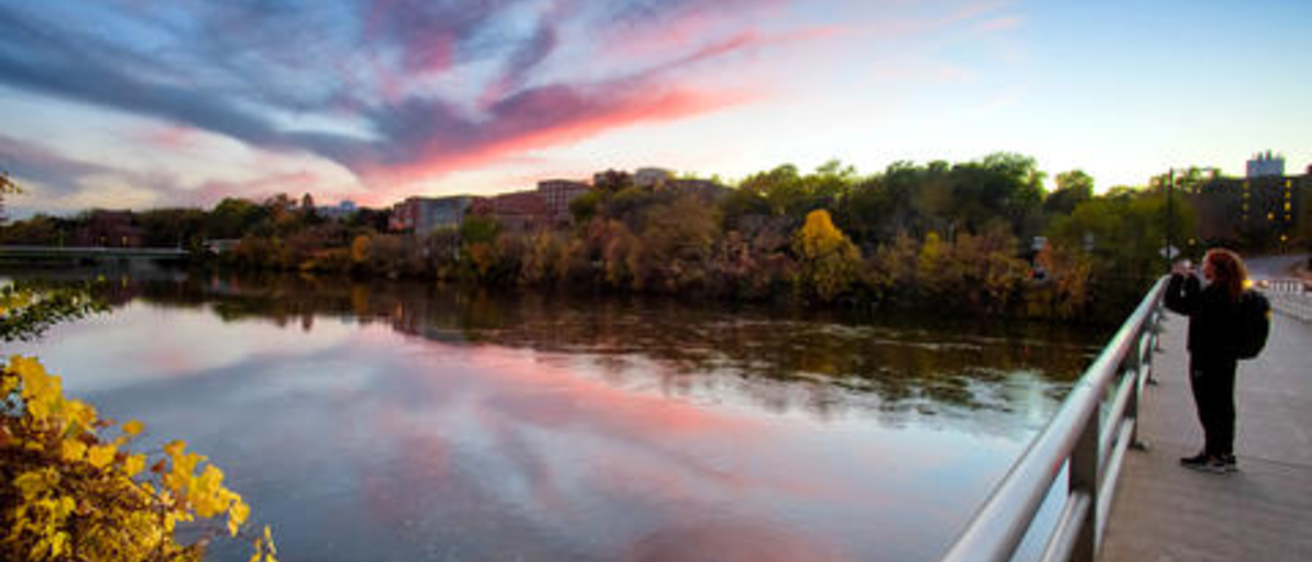Dear members of the College of Law community:
After consultation with faculty, staff and other important stakeholders at the University of Iowa College of Law, I wish to recognize the painful and unjust history of systemic racism in this country, predating even its founding and continuing through slavery to the present day. The killings of George Floyd, Ahmaud Arbery, Breonna Taylor, and so many others have shed fresh light on a system that has long oppressed communities of color in America.
It is important to say these names -- and say them often -- in order to remember the lives that were unjustly cut short.
These deaths are part of a larger pattern in which police officers have taken the lives of Black and brown people in brutal fashion and without justification. But policing is not the only place where racial bias is found. The oppression of people of color remains hardwired into our national life. Racial exclusion and targeting is an everyday fact of life for too many of our friends, co-workers and neighbors. These pernicious influences are felt throughout their economic and social lives, affecting where they work, where they live, where they go to school, and who they love. It exposes them to higher risk of death from Covid-19. These longstanding harms, and their legacies, permeate government, business, science, and academia.
I am proud to be the dean of a great law school. I strongly believe in our country’s unique commitment to the rule of law and its basic promise to force even the rich and powerful to meet certain responsibilities to the rest of us in society. According to theory, no person is above the law. But, as a Native American, I know that the promise of the rule of law often fails in practice. When the rule of law fails to meet its promise, as happens repeatedly in cases of police brutality and so many other situations, the pain of that failure falls most heavily on people of color and the poor. This cannot continue.
Recent events are emotionally draining because they provide stark reminders that there is evil in the world, and the rule of law is not always adequate to protect us. This is painful and disheartening. It saps our faith in our most important institutions.
To our students and the broader Iowa Law community, please know that you are not alone in your pain and your sadness. We know you are not okay—we are not okay either. No one can witness these events and remain unaffected. My faculty and staff colleagues and I stand beside you, and we embrace the powerful and moving words of our Black Law Student Association and the Iowa Law Diversity, Equity, and Inclusion Committee:
It is important to recognize that each one of them was killed while doing simple daily activities that many of us take for granted, causing many more to live in fear of when their “luck” may run out. This loss of life is an outrageous consequence of deeply ingrained racism, which has been highlighted in recent years.
My colleagues and I are listening and learning. Together with our student organizations, we affirm that Black Lives Matter. Recent events represent a call to justice. We must rethink the ways systemic racism permeates our everyday lives. We must examine our institutions and ourselves and face difficult truths. We must make changes in the law, changes in society, and changes in our law school. As legal educators, we must dedicate ourselves more consciously to the mission of creating a more just world. These words today will be followed by concrete and affirmative steps. I invite our students, alumni, and all members of our community to hold my colleagues and me accountable to that commitment.
At the College of Law, we embrace social justice as our responsibility and we commit to making anti-racism an integral part of our work, in the classes we teach, in the clinical and advocacy work we undertake, in the scholarship we produce, in the decisions we make, and in our everyday interactions within and without these walls. We also dedicate ourselves to examine systems and processes throughout the law school—ranging from curriculum and alumni support to outreach and community building—in order to guard against institutional racism and implicit bias.
We have much to be proud of in our existing work, and we have many areas in which we can improve. We will commit resources to building a more diverse and inclusive law school community, specifically through targeted recruitment of faculty, staff, and students of color. We commit to creating spaces—both in and outside the classroom—for students to tell their stories, share their concerns, and know that their experiences, advice, and opinions matter to the decisions made in the Boyd Law Building. To be effective educators, we must listen to our students.
We pledge ourselves to this essential work.
For some preliminary steps, we have increased dialogue around these important issues. The UI Center for Human Rights, based at Iowa Law, is hosting a series of webinars through the summer entitled “Racial Equity & Human Rights.” The Innovation, Business, and Law Center, also housed at Iowa Law, will present a speaker series in the fall semester of 2020, on race and business law. But we know that dialogue is not enough.
This fall, we will welcome a new class of law students and we have worked to make it the most diverse in recent history. Our students give us hope for the future. We will also welcome our new Faculty Fellow and will begin the search for a second one. The Faculty Fellows program was developed to help diverse and first-generation professionals pursue careers as law professors in the legal academy. These are tangible steps toward a better and stronger law school community. Much more work is being planned.
The time for action is now.
Kevin K. Washburn
N. William Hines Dean and Professor of Law
